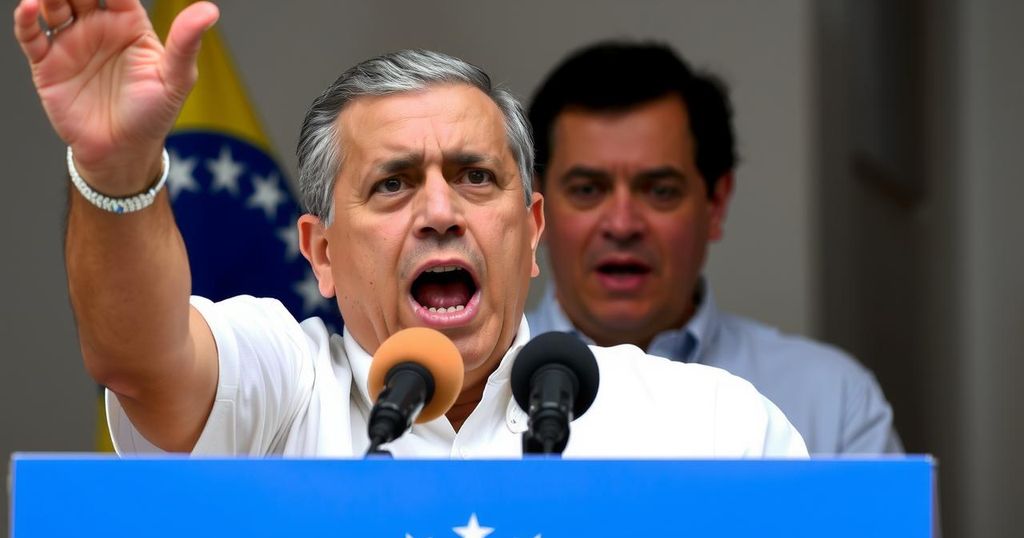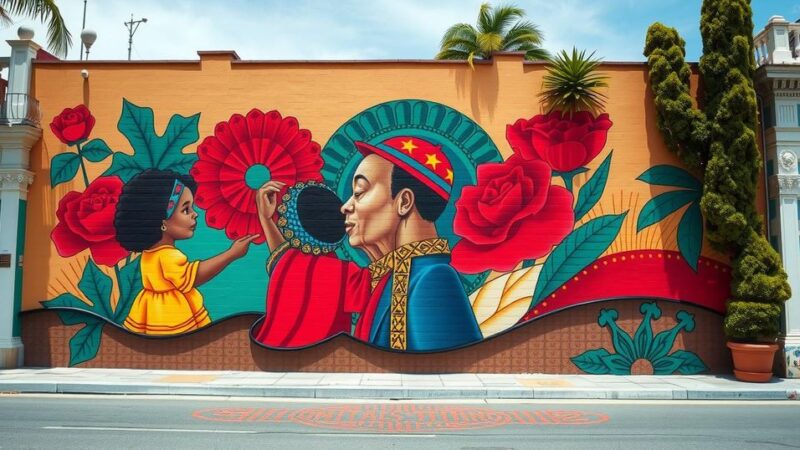Venezuela faces a contentious inauguration as Nicolás Maduro plans to assume a third term amid claims of electoral fraud by challenger Edmundo González. The situation has incited massive protests, a government crackdown on dissent, and heightened tensions internationally as countries choose sides and potentially affect migration rates across the region.
This week, Venezuela finds itself divided over its rightful president, with both incumbent Nicolás Maduro and challenger Edmundo González claiming victory in the recent presidential election. Scheduled for inauguration on January 10, Maduro faces considerable international opposition, as many countries do not recognize the legitimacy of his electoral win. Meanwhile, González, who has been in exile since September, is intent on returning to Venezuela to assume office, despite potential arrest by the authorities.
The power struggle intensified after the National Electoral Council announced Maduro’s victory without disclosing voting figures, which led to allegations of electoral fraud. The opposition’s claims, bolstered by independent analyses, suggest that González won decisively, prompting widespread protests in Venezuela demanding electoral transparency. In response, the government initiated a violent crackdown on dissent, resulting in thousands of arrests, including minors.
On inauguration day, González and a coalition of former Latin American leaders plan to enter Venezuela, potentially facing significant risks as government officials, such as Interior Minister Diosdado Cabello, have issued threats of arrest. Concurrently, Maduro has received a formal invitation to the swearing-in ceremony, vowing to undertake the event in the spirit of national unity and security. In the days prior, Venezuelan authorities have heightened their presence, arresting over 125 individuals, including alleged foreign mercenaries, in preparation for the inauguration.
Internationally, a continued Maduro presidency threatens to exacerbate Venezuela’s already strained relations with neighboring countries. Many regional nations have refused to recognize his government, choosing to support González instead. The looming inauguration may affect migration patterns across the Americas, as millions of Venezuelans have fled economic turmoil under Maduro’s leadership, seeking refuge in neighboring and distant countries such as the United States.
The political landscape in Venezuela has been tumultuous, with Nicolás Maduro’s administration facing increasing scrutiny regarding the legitimacy of its electoral victories. The latest presidential election, held on July 28, has resulted in divergent claims as Maduro declared himself the winner, backed by an electoral council perceived as biased. In contrast, Edmundo González emerged as the primary opposition figure, asserting his victory with substantial public support and documented evidence of election irregularities. This contest has prompted widespread civil unrest and a severe governmental response that underscores the ongoing conflict between the Maduro regime and its opponents.
The events surrounding this week’s presidential inauguration in Venezuela highlight the intense political struggle between Nicolás Maduro and Edmundo González. As Maduro prepares for a contested swearing-in ceremony, González is rallying support to contest his claims. The outcome of this dispute not only holds implications for Venezuela’s internal stability but also threatens to influence diplomatic relations and migration patterns across the Americas, reinforcing the urgency for resolution and recognition in this deeply divided nation.
Original Source: www.cnn.com






